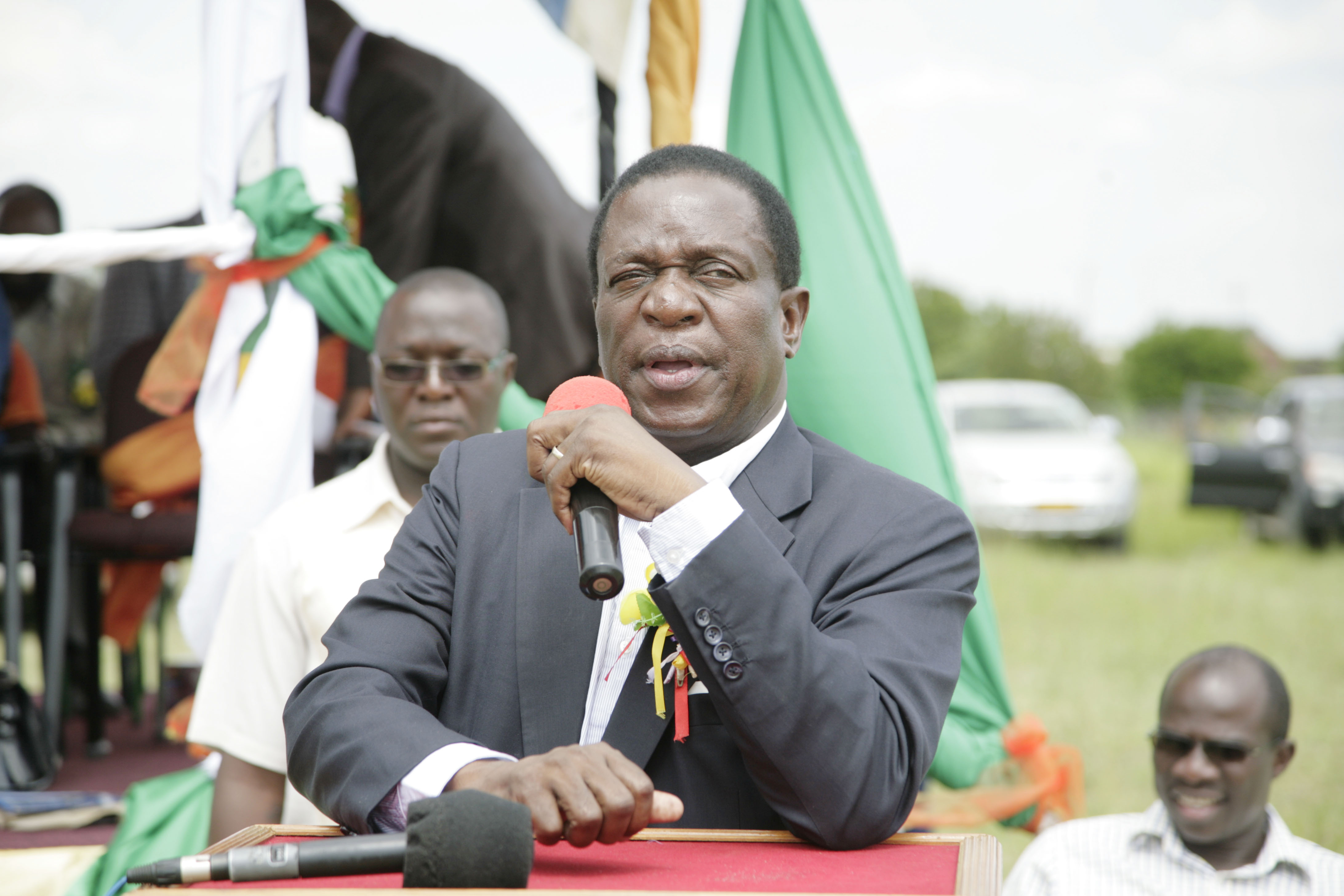
VICE-President Emmerson Mnangagwa on Wednesday said there was underutilisation of irrigation facilities in the country, with only 153 000 hectares of land under functional irrigation out of a total of 220 000 hectares of installed irrigation.
BY OBEY MANAYITI
Mnangagwa said this at the annual National Agri-business Conference running concurrently with the Zimbabwe Agricultural Show in Harare under the theme Managing Climate Change for Enhanced Agricultural Productivity in Zimbabwe.
“Like all other developing nations, agriculture in Zimbabwe is largely rain fed. The country has a total of 220 000 hectares of installed irrigation capacity out of which 153 000 hectares is functional,” Mnangagwa said.
“This is a sad reality because Zimbabwe has adequate water to irrigate two million hectares. Because of the low usage of irrigation, Zimbabwe is highly-vulnerable to erratic rainfall patterns which directly affect our farm output and pose a huge threat to the attainment of self-sufficiency in food security and nutrition.”
The VP also implored different stakeholders to invest in finding mechanisms necessary to deal with effects of climate change as the country continued to suffer from recurring droughts.

He said the country was spending a lot of money through imports, including food, yet there was capacity to increase production and create revenue through exports.
- Chamisa under fire over US$120K donation
- Mavhunga puts DeMbare into Chibuku quarterfinals
- Pension funds bet on Cabora Bassa oilfields
- Councils defy govt fire tender directive
Keep Reading
Mnangagwa said strategic recommendations on the appropriate research, technology and support services were needed to increase agricultural productivity in Zimbabwe.
“We must continually generate and share new knowledge taking advantage of the information revolution. It is, therefore, necessary to invest in research and development designed to meet the challenges of climate change.
“We need to increase our investment into financing our climate change adaptation stratagem. By the same token we need to be innovative and creative in our financing options,” he said.
Mnangagwa said research institutions such as universities and colleges should spearhead the fight and come up with sustainable responses.
Due to persistent droughts, Zimbabwe has been importing maize from neighbouring countries, a situation that has kept piling pressure on the non-performing economy.
“These unplanned expenditures on food imports are a major drain on the fiscus and they further worsen our balance of payments position already negatively affected by imports of fuel and manufactured products that are not produced within our borders,” he said
Zimbabwe Meteorological Services Department director Amos Makarau said the country has been experiencing extreme weather patterns with prolonged droughts because of climate change.
He said rainfall in the country has been violent and disruptive, adding the country should try to invest on irrigation and other water harvesting mechanisms.











